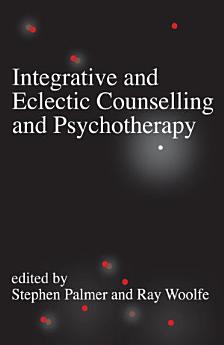Integrative and Eclectic Counselling and Psychotherapy
អំពីសៀវភៅអេឡិចត្រូនិកនេះ
`The editors′ support for the integrative project is clear, but the book will hold its own with the sceptics too. I recommend it′ - Counselling at Work
This innovative and timely book examines the issues and ideas surrounding integration and eclecticism in a therapeutic context, and provides a detailed account of a wide range of approaches in use.
Following an exploration of the origins of integrative and eclectic processes, 10 approaches are explained in detail. Chapters on each approach: describe its central concepts, assumptions and therapeutic goals; outline its view of how psychological disturbance is acquired, perpetuated and resolved; examine how the theory relates to practice - including examples of typical sessions and case studies; and consider which clients might benefit.
Further chapters explore the implications of using integrative and eclectic approaches for training, supervision, for working in a time-limited context and from a multicultural perspective.
អំពីអ្នកនិពន្ធ
Professor Stephen Palmer PhD is an award winning psychologist and psychotherapist. He is Founder Director of the Centre for Stress Management, London. He is the UK′s first Visiting Professor of Work Based Learning and Stress Management at Middlesex University. He has authored/edited over 50 books including The Beginner′s Guide to Counselling and Psychotherapy (Sage, 2015). He is Co-editor of the European Journal of Counselling Theory, Research and Practice. Currently he is Honorary President of the International Stress Management Association; President of the International Society for Coaching Psychology; Founder Co-Chair of the London Branch of the British Association for Behavioural & Cognitive Psychotherapies; a Founder Director and Vice President of the Society of Dialectical Behaviour Therapy and a Director and Deputy Chair of the Association for Rational Emotive Behaviour Therapy. His interests include jazz, art and coastal walking.
Ray Woolfe is a Counselling Psychologist in private practice.







